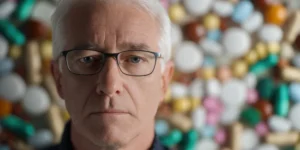Recovery Requires More Than Willpower; It Demands Expertise
What role does professional help play in overcoming alcohol addiction, particularly when willpower alone isn't enough for lasting recovery? Get help from qualified counsellors.
- Covered by Medical Aid & Private Health Insurance
- Outpatient, Detox, Primary, Secondary, Sober Homes
- Effective Addiction & Mental Health Treatment
Willpower Is Not A Treatment Plan
The most common lie about alcoholism is also the one that sounds the toughest. People still believe the answer is a decision, then sheer willpower, then a clean break, and if the person slips it must mean they did not want it enough. If that were true, alcoholism would be rare, because most alcoholics have had plenty of mornings where they wanted to stop, promised to stop, and genuinely meant it. The problem is that wanting is not the same as being able to, and once dependence is entrenched the brain does not respond to motivational speeches the way people imagine.
The willpower story does damage because it turns alcoholism into a character test. Families stop seeking help because they think it is embarrassing to admit the person cannot simply pull themselves together. The alcoholic hides because they are ashamed of needing support, and shame drives more drinking. Then everyone watches the same pattern repeat and pretends it is a mystery. Alcoholism is not beaten by toughness alone, it is beaten by structure, treatment, accountability, and a life that stops feeding the addiction through routine and access.
When Drinking Stops Being A Choice
There is a point where drinking is no longer about fun, celebration, or even stress relief, it becomes relief from the body itself. Tolerance builds, meaning the person needs more alcohol to feel the same effect, and that increases the amount and the frequency. Dependence follows, meaning the body adjusts to alcohol being present and begins to react when it is removed. People call it needing a drink, but in heavy dependence it can feel like the nervous system is on fire, shaking, sweating, anxiety, nausea, insomnia, panic, and the constant sense that something is wrong.
That is where the survival feeling comes from. The person drinks not to party, but to stop the internal alarm. That alarm is partly physical and partly psychological, and it is what makes the stop drinking advice so naive. You are not asking someone to skip a habit, you are asking them to sit inside a storm their body has been trained to quiet with alcohol. This does not mean the person is powerless, but it does mean they need proper help, because quitting suddenly can be medically risky for some, and going back to the same environment without tools makes relapse the most predictable outcome.
The Cure Argument
Families often ask the question that seems simple and is loaded at the same time. Can alcoholism be cured. People argue about wording, and then they miss the practical point. Many treatment professionals and many people in long term sobriety describe alcoholism as something that can be arrested through abstinence, rather than cured in the sense that the person can safely return to controlled drinking. This idea frustrates people because they want a clean ending, and they want proof that after enough time the person can drink normally again.
The reality is that for many alcoholics the brain learns a pattern that does not reliably reverse. A person can stay sober for years and still find that one drink wakes up the old machinery, the craving, the bargaining, the rationalising, and the return to hiding. The argument about cure can become a distraction. The useful question is not whether the label is permanent, the useful question is whether controlled drinking is a safe experiment for that individual, and for many people with a history of dependence the honest answer is no. Families need clarity here, because the moderation fantasy is one of the most expensive ways to relapse.
The Controlled Drinking Fantasy
The controlled drinking fantasy usually returns in polite clothes. It shows up at weddings, holidays, business events, reunions, and family celebrations where everyone is drinking and the sober person feels exposed. People say it would be rude not to toast, or it is just wine with dinner, or I have been good for months so I can handle it now. They often believe they are being mature, but they are playing with a system that has burned them before.
For many alcoholics the first drink is not the disaster, the first drink is the permission. Once permission exists, the brain starts negotiating, and the rules weaken quickly. This is where people underestimate how fast things can shift. Someone can be stable for a long time, then a single night of drinking can reopen cravings, reduce inhibition, and lead to a rapid spiral back into old behaviour. Families often struggle to accept this because they judge the spark by its size. A small drink looks harmless, but consequences are not measured by the size of the drink, they are measured by what the drink unlocks in the person’s brain and life.
Rehabs in other cities of South Africa.Motivation Is Helpful, But It Is Not The Gatekeeper
Another damaging myth is that treatment only works if the alcoholic is highly motivated, wants it for themselves, and walks into rehab with a perfect attitude. Families hear that and feel hopeless, because they are staring at someone who denies they have a problem, blames everyone else, or promises to stop without changing anything. Then the family waits, hoping the person will suddenly develop insight on their own.
External pressure can be the turning point, and it often is. Family pressure, employer pressure, court pressure, and the pressure of real consequences can push someone into treatment, keep them in treatment, and help them take it seriously. That does not mean you drag someone into rehab as a punishment, it means you stop collaborating with the addiction through rescue and excuses. Many people who are sober today began treatment because someone else insisted, and once inside a structured environment they finally saw what alcohol had been doing to their mind, their body, and their relationships. Motivation can grow after action begins, not before.
Interventions Without The Theatre
An intervention does not need screaming, dramatic speeches, or a family ambush filmed in a lounge. What works is calm coordination and consistency. Families need to agree on the message and the boundaries, then hold them. That means no mixed signals, no one parent threatening while the other rescues, no partner setting limits on Monday and collapsing on Tuesday because guilt takes over. Consistency is what addiction fears because addiction thrives on loopholes.
A practical intervention is built around reality. We have seen what alcohol is doing, we are not pretending anymore, we are not funding it, we are not covering for it, and we are not living under it. It includes clear consequences, not as revenge, but as safety, such as not allowing drinking in the home, not allowing access to money, not allowing violence or intimidation, and insisting on assessment and treatment involvement. In some cases professional guidance is essential, especially when there is a risk of violence, severe mental health issues, or medical dependence that makes withdrawal dangerous. Families do not need to become therapists, but they do need to stop being accomplices to the illness.
What Quality Alcohol Rehab Really Does
People think rehab is a place where someone is locked away until they are fixed, and that misunderstanding fuels disappointment. Quality rehab begins with proper assessment and often includes medically supervised detox where appropriate, because withdrawal can be dangerous and because stabilising the body creates a platform for the deeper work. Once the body is stabilised, the programme focuses on behaviour, thinking patterns, triggers, coping skills, emotional regulation, and rebuilding routine.
The goal is not to shame the person into sobriety, the goal is to equip them to stay sober when life becomes uncomfortable again. That involves therapy that targets denial and self deception, group work that breaks isolation, education that helps the person understand their pattern, and practical skills for handling cravings without acting on them. Good programmes also involve families because the home system often needs a reset. Families need to understand enabling, boundaries, relapse warning signs, and how to support change without turning the house into a battleground. A sober person returning to a chaotic home is a high risk scenario, and rehab that ignores the family reality is leaving a major gap.
The Real Goal
The point of treatment is not to create a person who can grit their teeth forever, it is to create a person whose daily life supports sobriety. That means stable routines, sleep, movement, meaningful work, honest relationships, and community support. It means avoiding the people and places that feed the old pattern, not out of weakness, but out of realism. It means understanding that alcohol will always offer itself as relief, and choosing a life where relief comes from healthier sources, connection, purpose, and skills that actually work under pressure.
If your family is dealing with alcoholism, stop betting everything on willpower and perfect motivation. Push for assessment, push for proper treatment, and hold boundaries that make the addiction uncomfortable. A small spark can still create a massive explosion, and that is why the safest approach is not testing controlled drinking, it is building a stable sober life that does not need to gamble with fire.

Alcohol Detox Is Not a Bravery Contest Alcoholism is still treated like a personality flaw…

Why Families Still Expect Addiction To Announce Itself Most families imagine addiction as something obvious.…

Prescription Medication Addiction Is Not A Fringe Problem Prescription medication addiction does not fit the…